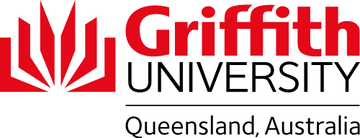Editors Lili Pâquet and Rosemary Williamson (University of New England, Australia) invite submissions of chapters for an edited collection: True Crime and Women: Writers, Readers, and Representations.
Proposals due by Friday 26 August.
Research on true crime demonstrates that while it once was mainly targeted at male audiences (Punnett, 2018), in recent decades it has been consumed by women (Boling & Hull, 2018). This shift is significant in several ways. The representations of women as victims and perpetrators in true crime have had effects on cultural perceptions around crime and safety. True crime readers are less supportive of criminal justice institutions, and audience’s fears can have real effects on the public opinion of legal policies around crime (Kort-Butler & Hartshorn, 2011). Studies of true crime often aim to discover why audiences are drawn to true crime (see Harris & Vitis, 2020), finding that women look for survival strategies in the genre (Browder, 2006; Vicary & Fraley, 2010) and for a kind of informal justice outside formal institutions such as courtrooms (Pâquet, 2021). The genre also presents women with the issues related to their representation through media (Yardley, Wilson & Kennedy, 2017; Slakoff 2022).
Editors Lili Pâquet and Rosemary Williamson (University of New England, Australia) invite submissions for a peer-reviewed edited collection to be proposed for Routledge’s new ‘Studies in Crime, Culture and Media’ series. We are interested in chapters that investigate the intersections of the true crime genre, cultural perceptions of justice, media (both traditional and new media forms), and women (as readers, writers, or through representations within narratives).
We are looking for academic chapters on the following topics, but are open to other related topics:
- The representation of women in true crime, as victims or criminals
- Female audiences of true crime, their motivations and responses
- Feminist true crime
- Writing and structuring narratives in true crime
- Rhetorical analyses of true crime
- How true crime affects perceptions of gender-based violence
- True crime podcasts
- Historic true crime
- True crime on screen: documentaries, TV series
- Fictionalised true crime such as Inventing Anna, The Dropout, etc.
- Institutional justice and its intersections with true crime
- Quantitative and qualitative research of true crime audiences
- True crime and biography, autobiography, memoir or biofiction
- True crime from the writer’s perspective
Deadlines
Please send proposals of up to 500 words, plus short bios of up to 50 words to Lili Pâquet at lpaquet@une.edu.au by Friday 26 August 2022. We will notify authors of the outcome in September 2022. Full chapters will be 5000-6000 words length.
References
Boling, K. S. & Hull, K. “Undisclosed Information – Serial is my Favorite Murder: Examining Motivations in the True Crime Podcast Audience.” Journal of Radio & Audio Media 25.1 (2018): 92-108.
Browder, L. “Dystopian Romance: True Crime and the Female Reader.” The Journal of Popular Culture 39.6 (2006): 928-953.
Harris, B. & Vitis, L. “ Digital Intrusions: Technology, Spatiality and Violence Against Women.” Journal of Gender-Based Violence 4.3 (2020): 325-341.
Kort-Butler, L.A. & Hartshorn, K.J.S. “Watching the Detectives: Crime Programming, Fear of Crime, and Attitudes about the Criminal Justice System.” The Sociological Quarterly 52.1 (2011): 36-55.
Pâquet, L. “Seeking Justice Elsewhere: Informal and Formal Justice in the True Crime Podcasts Trace and The Teacher’s Pet.” Crime Media Culture 17.3 (2021): 421-437.
Punnett, I.C. Toward a Theory of True Crime Narratives: A Textual Analysis. New York and London: Routledge, 2018.
Slakoff, D.C. “The Mediated Portrayal of Intimate Partner Violence in True Crime Podcasts: Strangulation, Isolation, Threats of Violence, and Coercive Control. Violence Against Women 28.6-7 (2022): 1659-1683.
Vicary, A.M. & Fraley, R.C. “Captured by True Crime: Why Are Women Drawn to Tales of Rape, Murder, and Serial Killers?” Social Psychological and Personality Science 1.1 (2010): 81-86.
Yardley, E., Wilson, D. & Kennedy, M. “‘To Me Its [sic] Real Life’: Secondary Victims of Homicide in Newer Media.” Victims and Offenders: An International Journal of Evidence-Based Research, Policy, and Practice 12.3 (2017): 467–496.

